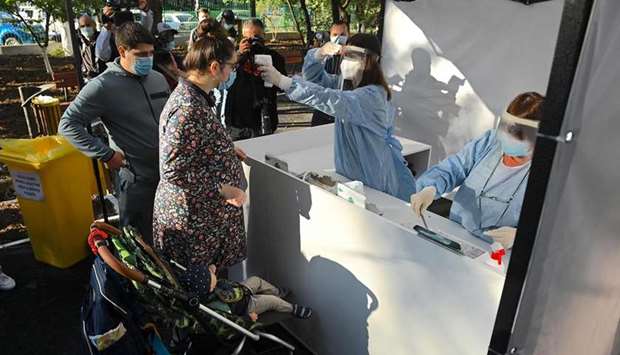Romania’s deeply-entrenched Social Democrats lost control of capital Bucharest in local elections yesterday, exit polls showed, as mask-clad voters chose mayors and local councillors nationwide in the first electoral test after years of political turbulence.
Held amid a surge in new coronavirus cases in the east European country of almost 19mn, the vote for some 43,000 seats is seen as bellwether for national polls in December.
The Social Democrats (PSD) have held the capital since 2008, but exit polls by local TV stations showed challenger Nicusor Dan took more than 47% of the vote, a comfortable lead over incumbent mayor Gabriela Firea’s 39%.
The mathematician and former social activist, who lost to Firea four years ago, is backed by his USR-PLUS party, but also by the currently ruling National Liberal Party (PNL).
PSD was unseated nationally last year in a parliamentary no-confidence vote after attempts to push through controversial justice reforms, despite warnings from Brussels, saw massive street protests.
Even so, the party, which has dominated the political landscape since the end of communism 30 years ago, maintains a strong presence in the countryside.
It relies on a disciplined electorate, often at the beck-and-call of “local barons” – politicians who have controlled certain regions for decades.
Worries that fear of the coronavirus would keep voters away were not borne out, with turnout an hour before polls closed at 45% nationwide, while for Bucharest it was 35%.
In the last local elections in 2016, final turnout was 48% across Romania and 33% in Bucharest.
Voters had to wear masks and maintain social distancing, with disinfectant provided at every polling station and temperature checks.
One of the EU’s poorest members, Romania so far has reported more than 122,000 coronavirus cases and some 4,700 deaths.
The number of infections has risen rapidly since the PNL-led government lifted a strict lockdown earlier this year.
Although some hospitals have been struggling with the numbers of virus patients, the government has so far ruled out re-imposing severe restrictions and further strangling the economy.
“I voted for the sake of the young generation, so they may have a better future. I have worked hard all my life, and now I have a miserable pension,” retired carpenter Marin Alexandru, 73, told AFP outside a Bucharest polling station.
A 46-year-old marketing consultant who only gave her name as Mihaela also had the young on her mind as she voted, as her 21-year-old son was planning to emigrate after finishing his master’s degree.
Millions of young romanians have left seeking better opportunities elsewhere in the EU.
Daniel David of Babes-Bolyai University in Cluj said that young people were less and less inclined to vote in municipal elections, underestimating the polls’ impact on their lives.
“If localities develop unevenly, it is because the local authorities make the difference,” he said.
While European cohesion funds – of which Romania has absorbed €58bn ($67bn) since joining the EU in 2007 – have enabled many municipalities to flourish, development gaps remain significant.

People get their body temperature measured as they enter a polling station in Bucharest.
